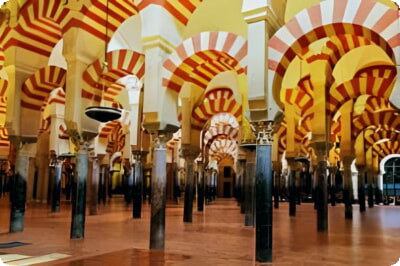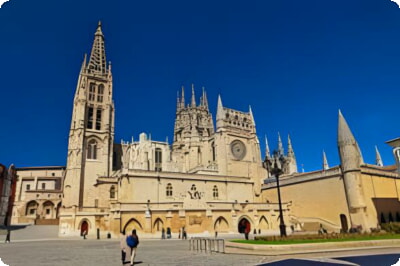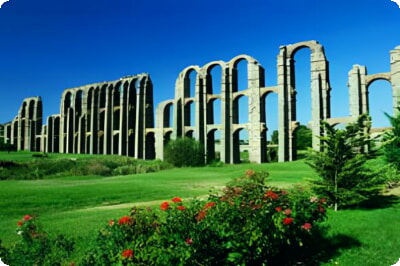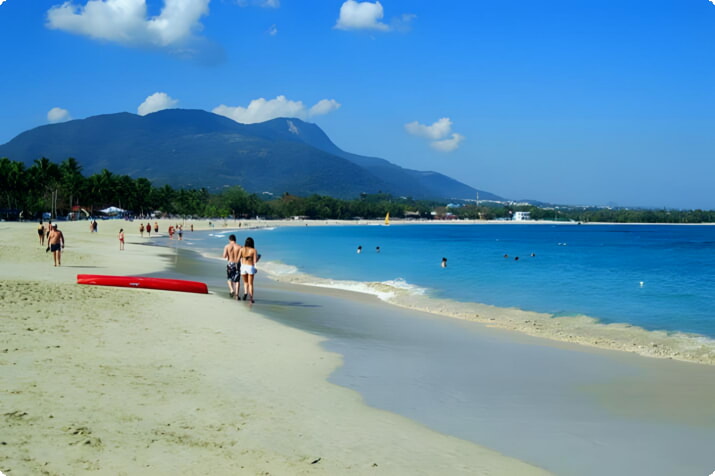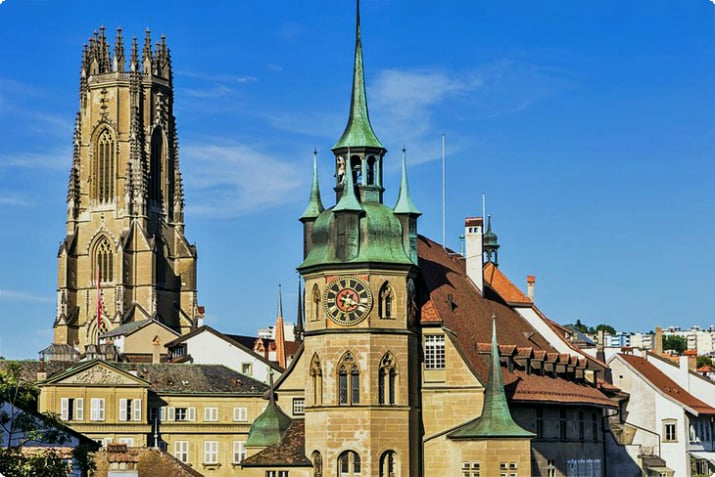Discover Segovia: A Historical Gem
Segovia, a UNESCO World Heritage site, is a treasure trove of historical landmarks, from its iconic Roman aqueduct to its enchanting Alcázar castle. This city's rich past spans from Roman times to the medieval Moorish period and beyond, leaving behind a labyrinth of cobblestone streets and a collection of architectural wonders.
1. Ancient Roman Aqueduct
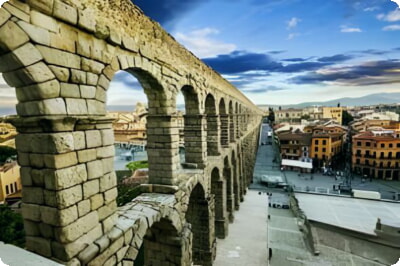
The Roman aqueduct, a marvel of ancient engineering, stands proudly as Segovia's most famous landmark. Built around 50 AD, it stretches 17 kilometers from the mountains to the city, constructed from granite blocks without mortar. The best viewpoint is at Plaza del Azoguejo, where it reaches 28 meters in height.
2. Alcázar
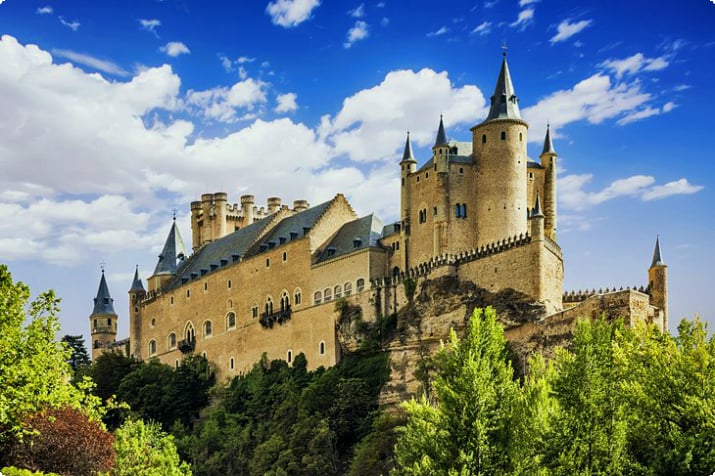
The Alcázar of Segovia, resembling a storybook castle, has served as a royal palace and military fortress. Visitors can explore its furnished rooms, including the Throne Room with its gilded ceiling, and climb the Tower of John II for panoramic views. Guided tours are available in multiple languages.
3. Palacio Real la Granja
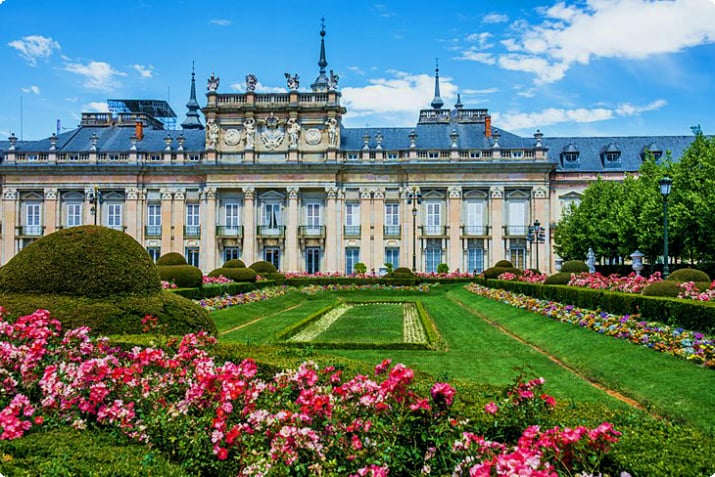
Located in the nearby town of San Ildefonso, this palace is a Baroque masterpiece inspired by France's Versailles. Visitors can admire the Throne Room, Room of Mirrors, and the surrounding French gardens with their stunning fountains.
4. Catedral de Segovia
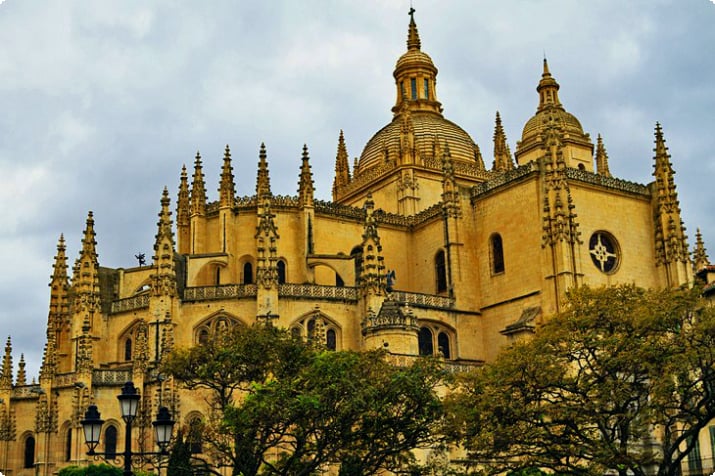
Segovia's Late Gothic cathedral, the last of its kind in Spain, dominates the cityscape. Its interior is adorned with stained-glass windows, sculptures, and a museum housing religious artifacts. The cathedral overlooks the bustling Plaza Mayor.
5. La Judería (Jewish Quarter)
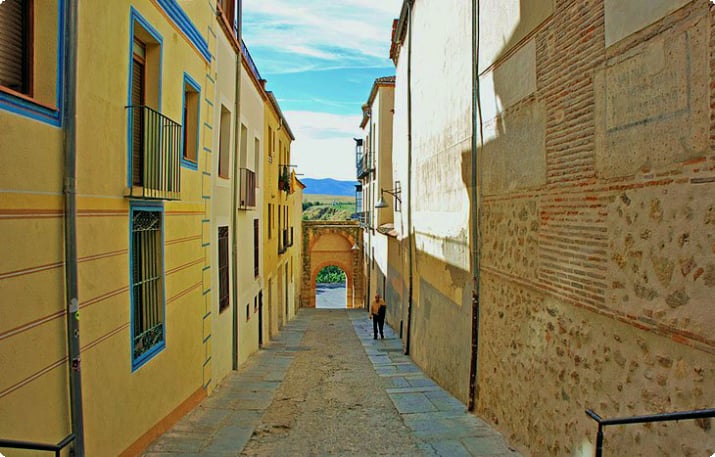
The Jewish Quarter, with its medieval atmosphere, offers a glimpse into Segovia's Sephardic history. The Convent of Corpus Christi, once a synagogue, and the Museo de Segovia, showcasing local history, are key highlights.
6. Real Casa de Moneda
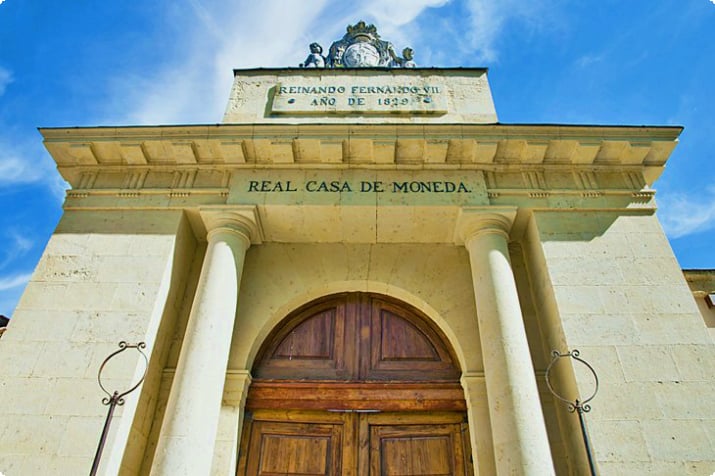
Segovia's Royal Mint, one of Spain's oldest industrial buildings, now hosts a museum detailing the history of coin minting.
7. Iglesia de la Vera Cruz
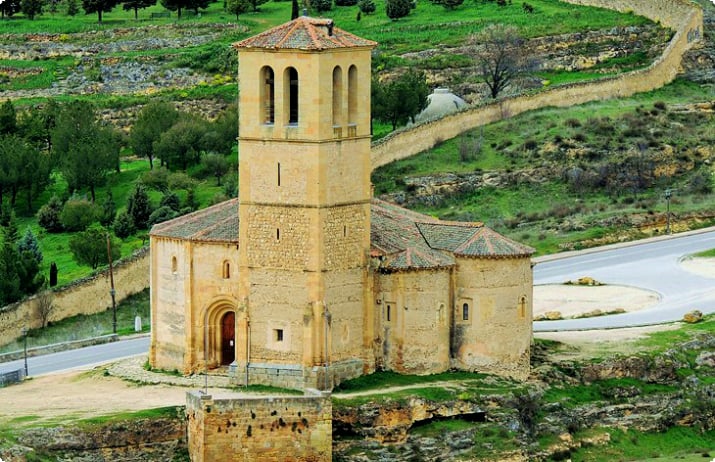
This Romanesque church, founded by the Knights Templar, is a National Monument known for its austere beauty and mystical ambiance.
8. Monasterio de Santa Maria del Parral
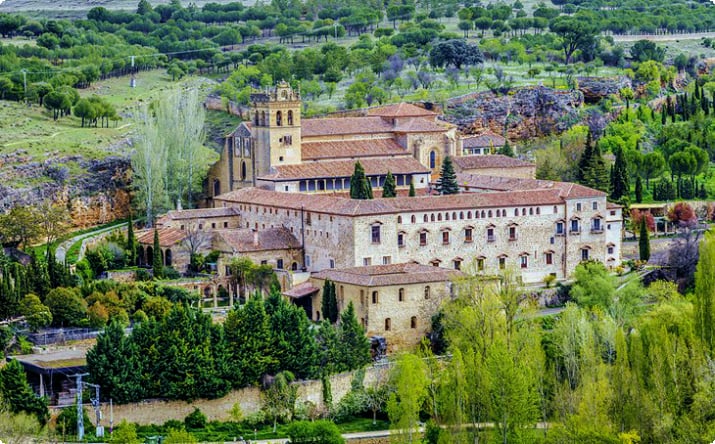
Set against a scenic backdrop, this monastery blends Gothic and Renaissance styles and is open for public visits.
9. Iglesia de San Esteban
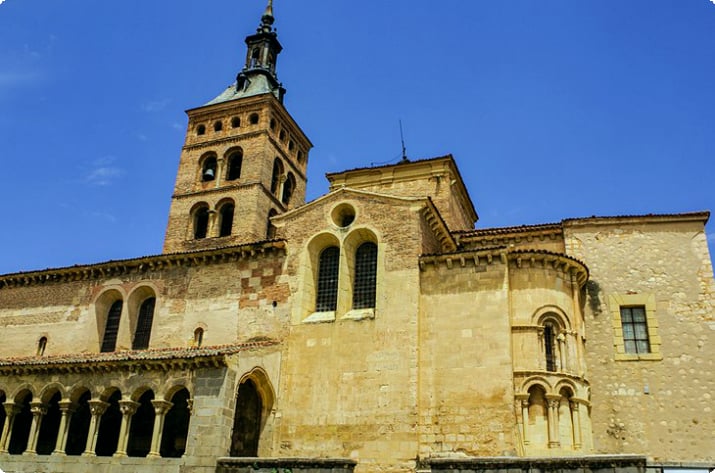
Known for its towering Romanesque bell tower, the Iglesia de San Esteban is a standout in Segovia's Old Town.
10. Iglesia de San Martín
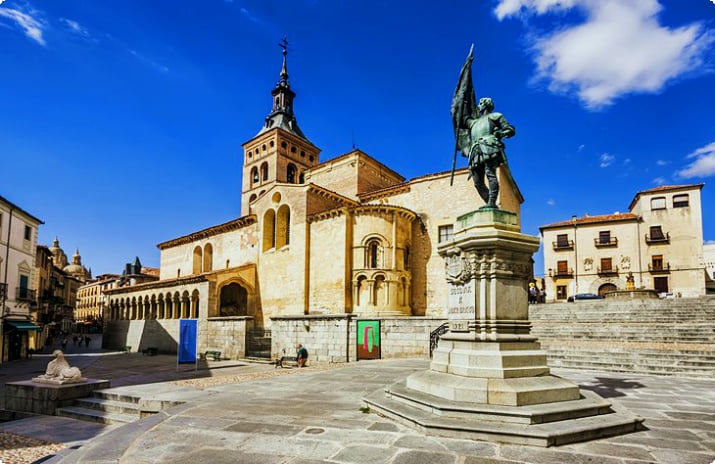
This 12th-century church is a fine example of Castilian Romanesque architecture, featuring notable artworks and a picturesque square.
11. Iglesia de San Millán
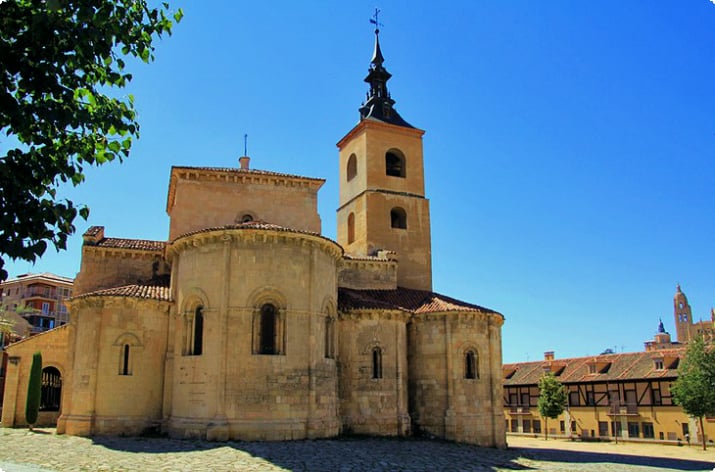
Located in the old Moorish quarter, the Iglesia de San Millán showcases Romanesque architecture with Islamic influences.
12. Museo Gastronómico de Segovia
This museum offers a taste of Segovia's culinary heritage, displaying traditional food products and regional specialties.
13. Iglesia San Juan de los Caballeros (Zuloaga Museum)

Once a Romanesque church, this building now exhibits the works of artists Ignacio and Daniel Zuloaga.
14. Muralla de Segovia (Ramparts)
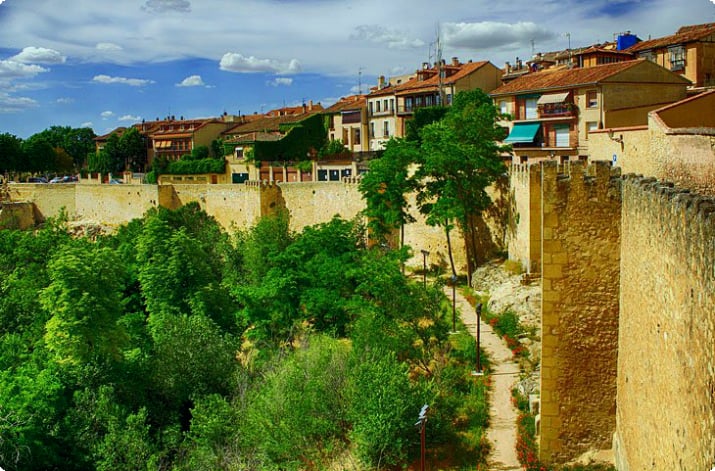
The ancient walls encircling Segovia offer a glimpse into the city's medieval defenses and provide stunning views of the city.
15. Iglesia de San Justo
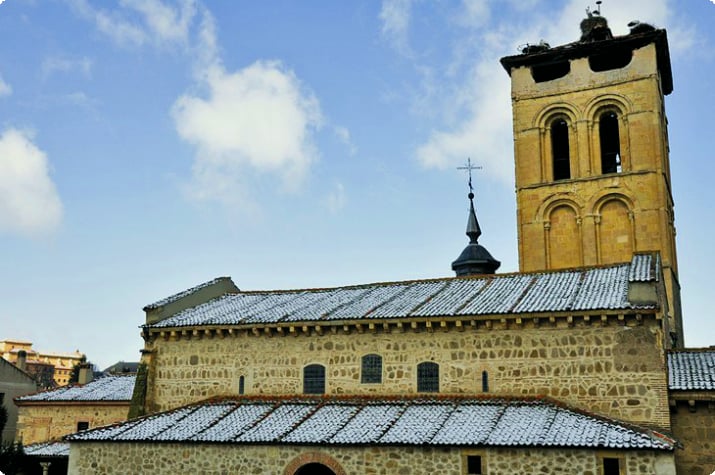
A Romanesque church near the aqueduct, San Justo is adorned with vibrant frescoes and has a rich history.
16. Iglesia de San Clemente
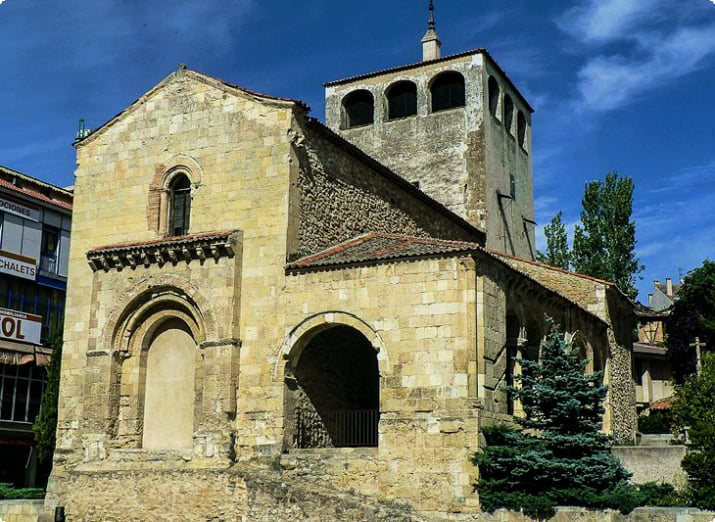
This 13th-century church features Romanesque architecture and precious frescoes.
17. Casa de los Picos
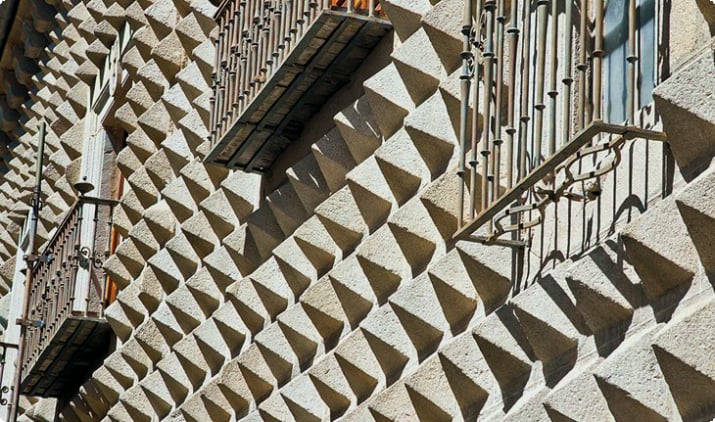
An aristocratic mansion with a unique facade, now home to the Segovia Art School and an exhibition hall.
18. Museo de Arte Contemporáneo Esteban Vicente
This museum showcases the abstract and modern works of Spanish painter Esteban Vicente in a historic palace setting.
Where to Stay in Segovia for Sightseeing
Segovia's compact historic center offers a range of accommodations from luxury to budget, all within walking distance of the city's main attractions.


